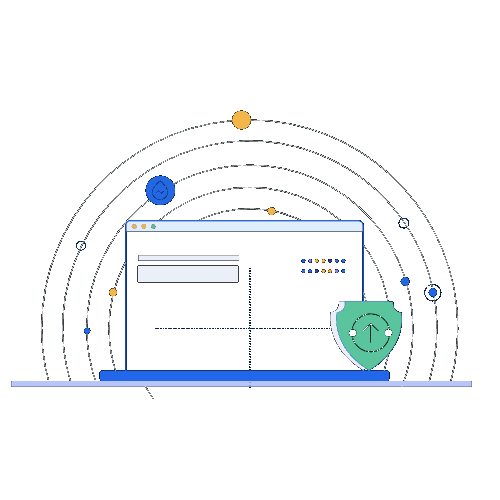COMPANIES LIKE YOURS GET
BREACHED EVERYDAY…
TAKE THESE STEPS
TO PREVENT ATTACKS..

COMPLETE THIS FORM
Fill out the short form and we’ll be in touch right away to discuss your needs.

CUSTOMIZE
Together we determine which one of our cybersecurity packages best suits your individual needs.

CONFIGURE
Our team will install, configure and test the solutions in your environment to minimize cyber risk.

COMMENCE
After completion, our team will re-evaluate your overall security posture and provide ongoing cyber defense services.
GET AFFORDABLE CYBERSECURITY FOR YOUR BUSINESS
SEE WHY SO MANY COMPANIES LIKE
YOURS ARE SWITCHING TO
TX SOLUTIONS…
Painting Company

Future Valued Customer,
The digital world continually evolves, and the line between our physical and digital lives blurs more with every passing day. Modern society increasingly relies on technology for everyday life and has never been more susceptible to hackers and nefarious cyber-criminals.
There is a growing cybercrime epidemic that has reached greater heights over the past decade, with an average of more than 40 million devices being attacked each day alone. With this rising threat, cybersecurity has become a vital issue for every individual, company, and government worldwide. Let’s learn some basics about cybersecurity and its various threats, so we can all take steps to protect our online identities.
Frequently Asked Questions:
What is the cyber security definition?
Cybersecurity is the practice of protecting electronic information from unauthorized access or theft. It includes measures to protect against computer viruses and other online threats. Cybersecurity involves both technology and policy. Effective cybersecurity requires a layered approach that provides strong security protocols, user education, and incident response plans.
What is cyber security?
Cyber security protects computer networks and systems from attack, damage, or unauthorized access. It is an umbrella term encompassing various aspects, including hardware, software, and information security. You can think of cybersecurity as a form of insurance for your digital life – the more you do to protect your devices with passwords and security codes, the better protected you are if someone attempts to hack into or steal from your online accounts.
What are cyber security threats?
Cyber security threats are any type of threat that targets electronic information or devices. There are many potential cyber security threats that businesses and individuals face today. Some of the most common include:
• viruses
• spyware
• hackers
• malware
• phishing attacks
• denial of service (DoS) attacks
• SQL injection attacks
• unauthorized access to systems
• data breaches.
Cyber security threats can have severe consequences, including financial loss, data theft, damage to reputation, system downtime or complete system failure, and even legal liability. In some cases, they can also lead to physical damage or harm. It is therefore essential that businesses and individuals take steps to protect themselves against these threats.
There are several ways to do this, including:
1. Installing and maintaining effective antivirus and anti-spyware software.
This software can help to protect your system against malware and other malicious software. It is important to keep it up-to-date, as new threats are constantly emerging.
2. Using a firewall.
A firewall can help to block unauthorized access to your system and can also be used to monitor and control traffic coming into and out of your network.
3. Keeping your operating system and software up-to-date.
Operating systems and software often contain security holes that can be exploited by attackers. By keeping them up-to-date, you can help to close these holes and make it more difficult for attackers to gain access to your system.
4. Using strong passwords and encrypting sensitive data
Using strong passwords is one of the most important steps you can take to protect your accounts and systems. Encrypting sensitive data helps to ensure that even if an attacker does gain access to your system, they will not be able to read the data.
5. Backing up your data
Backing up your data regularly helps to ensure that you can recover from a system failure or data loss. It is important to store backups in a safe, secure location, such as an off-site backup service.
6. Training employees in cybersecurity
Training employees in cybersecurity can help to raise awareness of the threats and how to protect against them. It is important to ensure that all new employees receive training, as well as periodic refresher training for all.
7. Implementing a security policy
Implementing a security policy involves creating and enforcing rules and procedures for employees to follow to help protect your systems and data. They ensure that everyone in your organization is aware of the importance of cybersecurity and knows what they need to do to keep things secure.
What is cyber security all about?
Well, to begin with, all about protecting your computer networks and systems from unauthorized access or theft. In a nutshell, it’s all about keeping your data safe and secure.
It all starts with implementing basic yet effective cyber security measures that can be customized based on your needs – things like having a strong password every time you log in or installing antivirus or other protective software on your devices. As a user, you have to take all the necessary steps to protect yourself because not everyone will do it for you.
For example, your bank will enable you to set up security codes and alerts, so if any unauthorized actions occur, you will know and can take appropriate actions.
Companies should have procedures in place to protect their assets and data. It will go a long way in ensuring that no one can breach your network or accounts. The same is true for government entities, which should have standard security procedures in place as well.
It goes without saying that every individual has their individual needs and wants when it comes to cyber security. Some of us like to keep our data “unimportant” private and want to ensure that the information in our accounts will remain out of sight and inaccessible to strangers. Other people have very important information in their accounts, which they wish to make sure is protected at all times.
What are cyber security services?
Cyber security services are the practices of securing networks, computers, programs, and data from unauthorized access or theft through the use of security measures. These services include:
• prevention and detection of attacks
• response to cyber-attacks
• protection of data and information systems
• recovery from an attack
• management of vulnerabilities.
• cyber incident response
• cyber intelligence
• intrusion detection and prevention
• application security etc.
What is a cybersecurity business?
Businesses today are under constant threat from cyber-attacks, which can lead to data breaches, loss of revenue, and reputational damage. As a result, it’s become essential for companies to invest in cyber security solutions and services that can help protect their networks and systems. The cyber security business is the same as any other business sector. It comes with a lot of perks, as well as some risks and threats. There are various ways to go about doing a cybersecurity business, including:
• Creating and selling software to other companies
• Providing consulting and maintenance services to organizations and private individuals
• Building and administering software for cyber security and hacking protection
• Working as a freelance cyber security expert
• Joining an existing company that specializes in cyber security
• Providing products and software to consumers, such as antivirus software or antimalware solutions.
• Working as an independent contractor for a cybersecurity company
• teaching others about cybersecurity through online courses or workshops.
• Establishing a cyber security firm that focuses on serving a specific industry or type of client.
• Building websites that are secure or offer information security services in exchange for payment.
• Working for a company that carries out cyber security operations and provides other related services.
These are just a few of the many ways the cyber business can come to fruition, but there are many more. Cybersecurity is always an evolving field and one where new threats pop up every day, so there will always be work to do, always someone who wants your help keeping their information safe.
What are cyber security and types?
There are many types of cyber security, but the most common ones include:
Application security:
This type of security measure protects applications from attacks that could potentially expose sensitive data or allow malicious code execution. Application security solutions usually involve a combination of firewalls, web application firewalls (WAFs), intrusion detection and prevention systems (IDPS), and application-level encryption.
Network security:
Network security solutions are designed to protect network infrastructure, such as routers, switches, and wireless access points, from attacks. These solutions usually involve the use of firewalls, intrusion detection and prevention systems (IDPS), and virtual private networks (VPNs).
Endpoint security:
Endpoint security solutions protect devices that connect to a network, such as laptops, smartphones, and tablets, from attacks. The solutions usually involve the use of antivirus and antimalware software, as well as firewalls and intrusion detection and prevention systems (IDPs). When used in conjunction with network security solutions, endpoint security solutions can provide a high level of protection for an organization’s data and infrastructure.
Internet-of-Things (IoT) security:
The IoT is a term used to describe the network of computer devices, home appliances, vehicles, and other items intergrated with electronics, sensors, software, and connectivity that enables these things to connect, collect and exchange data. IoT security solutions are designed to protect the devices and networks that make up the IoT from attacks. These solutions usually involve some combination of security software, hardware, and services.
Cloud security:
Cloud security is the set of policies, technologies, and controls that protect data, applications, and infrastructure in the cloud from threats. It includes the security of the cloud provider’s systems and networks and the security of the customer’s data and applications that are stored in or running on the provider’s infrastructure.

Cybersecurity is a critical part of protecting your digital life and identity. Unfortunately, it can be difficult to stay ahead of the latest threats when they are constantly evolving. However, by following some simple steps and using effective tools, you can greatly reduce your risk of becoming a victim of cybercrime.
How We WILL Fight To Protect You…
INDUSTRY UPDATES







